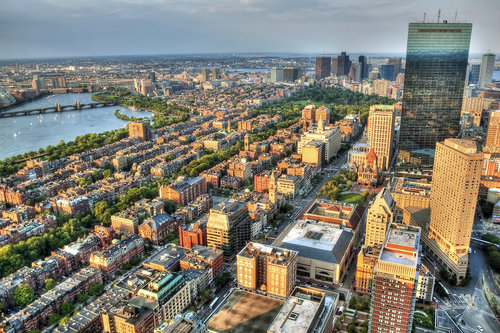The prevailing sentiment in the housing market is that it’s a great time to sell, as housing prices and demand have steadily creeped up. While that may be the case, such a rosy portrait of the market doesn’t tell the full story, which is that only one-third of all houses in the United States have fully recovered their value from their pre-recession peak.
That’s according to Trulia, which looked at individual home values in the 100 largest U.S. markets to determine what percent of their peak value they have recovered. Their findings show that just 34 percent of homes nationwide are now worth more than their pre-recession peak. At this rate, home prices nationwide will not recover their full value until 2025.
While the nationwide number is pretty bleak, a market-by-market look shows that home-value recovery varies wildly by location. In Las Vegas, only 3 percent of homes have recovered the value of their pre-recession peak, while cities like Denver and San Francisco both have at least 98 percent of their homes worth the same or more than their highest value before the 2007 recession, according to Trulia.
In Boston, 59 percent of homes have recovered their pre-recession peak value, good for 37th out of 100 U.S. markets, according to Trulia. The median home value as of March was $431,686, a significant post over the peak-recession median home value of $389,562.
| % of homes recovered pre-recession peak value | Median home value, March 2017 | Pre-recession peak median home value | Post-recession income growth | Post-recession job growth | |
|---|---|---|---|---|---|
| Boston | 59.30% | $431,686 | $389,562 | 11.90% | 13.90% |
Job market drives home price recovery
How has Boston been able to buck the nationwide trend of slow home price recovery? There are three factors Trulia identifies as driving home prices: income growth, population growth and post-recession housing vacancy rates.
For example, a 1-percentage-point increase increase in an area’s income growth correlates to a 3.5 percent increase in the percentage of homes that have recovered their value, according to Trulia. Boston’s post-recession income growth is 12 percent. It ranks 35th for income growth and 35th for home-value gains, showing the correlation between the two factors.
“The intuition here is this: housing is what economists call a ‘normal good,’” Trulia’s report reads. “So when incomes rise, households tend to spend more on housing, which pushes up prices.”
Competing portraits of the market
Trulia’s report diverges from the housing market portrait painted by entities like the S&P/Case-Shiller U.S. National Home Price Index. The S&P index just reported that home values have risen at the sharpest rate in three years. In January, the index hit its consecutive all-time high.
Though both the S&P and the FHFA House Price Index have exceeded their pre-recession peak, those measures pull data only from homes that sell. A majority of the homes not listed for sale have not recovered, and that truth is obscured in the other indexes, Trulia claims.
“The U.S. housing market recovery looks very different when examining the value of individual homes,” the report reads.


The late U.S. House Speaker Thomas P. “Tip” O’Neil once stated “All Politics is local.”. That adage appears to be accurate when the subject is real estate too.